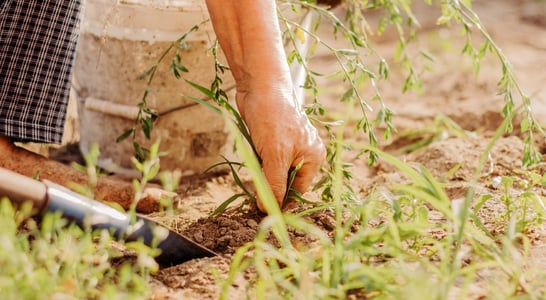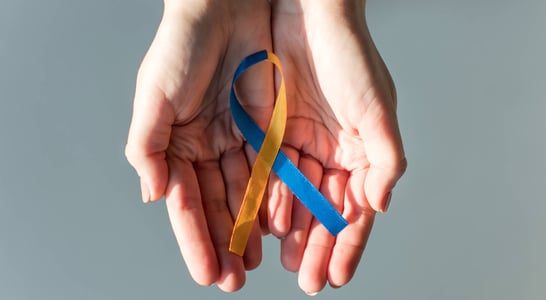
International Albinism Awareness Day
Imagine a day dedicated to understanding, including, and celebrating unique individuals. That day is International Albinism Awareness Day!
It’s a special time to learn about albinism, a genetic condition that affects people worldwide, regardless of gender or ethnicity. This day illuminates the challenges faced by those with albinism and promotes their rights and well-being.
How to Celebrate International Albinism Awareness Day
Celebrating World Food Safety Day offers a fantastic opportunity to raise awareness about the significance of safe food practices and to encourage actions that can help prevent, detect, and manage foodborne risks. Here are some engaging and informative ways you can participate in this global initiative:
Educate Yourself and Others: Learn more about food safety standards and share your knowledge with friends and family. Understanding the basics of foodborne illnesses, how to prevent them, and the importance of food safety can make a big difference.
Share on Social Media: Use your social media platforms to spread awareness about World Food Safety Day. Share facts, tips, and infographics on how to keep food safe from contamination. Remember to use the hashtag #WorldFoodSafetyDay to increase your post’s reach.
Participate in FDA’s Activities: The FDA encourages sharing food safety messages on platforms like Twitter and Facebook. They also provide educational materials that you can download and share to educate others about reducing the risk of food poisoning.
Attend Events: Look out for events organized by the UN, WHO, FAO, and other related organizations. These events are great opportunities to learn from experts and engage with a community that’s passionate about food safety.
Download and Use Promotional Content: The FAO offers a variety of promotional materials for World Food Safety Day, such as posters and GIFs, which you can use to spread the message in a fun and engaging way.
Advocate for Safe Food Practices: Talk about the importance of food safety in your community. This could involve discussions on handling, preparing, and storing food to prevent foodborne illnesses.
Support Food Safety Initiatives: Finally, support local and global food safety initiatives by staying informed, volunteering, or donating to organizations that ensure food safety and security.
Why Celebrate International Albinism Awareness Day
People with albinism often deal with visual impairments and are at a higher risk of skin cancer. This is especially true in regions where access to preventative care is limited. Discrimination and social exclusion are real issues, too.
This day helps spread knowledge and compassion, aiming to create a society that welcomes everyone. Celebrating diversity and advocating for equal rights are at the heart of this awareness day. Every year, a new theme guides the celebrations, reflecting a commitment to progress and hope. These themes emphasize the importance of inclusion and the protection of rights for people with albinism.
By participating in awareness programs, we can all contribute to making the world a better place for individuals with albinism.
History of International Albinism Awareness Day
The story of International Albinism Awareness Day began with a global call to action. Recognizing the urgent need to protect individuals with albinism from discrimination and violence, the United Nations General Assembly took a significant step.
On December 18, 2014, this day was proclaimed as International Albinism Awareness Day, starting from 2015. This declaration was a response to the hardships faced by people with albinism, including social exclusion and human rights violations.
Albinism, a condition marked by a lack of melanin pigment in the skin, hair, and eyes, affects people across all ethnic backgrounds. The establishment of this day aimed to challenge myths, stereotypes, and misconceptions surrounding albinism.
It called for increased awareness, understanding, and acceptance of this condition. Governments, organizations, and communities worldwide now come together to promote inclusivity, equality, and support for those with albinism.
Each year, the day is guided by a unique theme, highlighting various aspects of the experience of people with albinism and promoting a message of inclusion, hope, and resilience. By participating in activities and events, International Albinism Awareness Day strives to create a more inclusive and accepting world.
Also on ...
View all holidaysNational Weed Your Garden Day
Dig in the dirt, feel the sun on your skin, and uproot those pesky weeds! You'll uncover a beautiful canvas for your green thumb to paint on. Happy gardening!
World Softball Day
Get together a group of friends and get outside to play a fun, competitive, game of softball. Good exercise, good times with friends—what more could you want?
International Axe Throwing Day
Axe throwing is fun and for many a great way to blow off steam. See if any axe throwing locations near you are hosting a free event for Axe Throwing Day.
National Sewing Machine Day
Try working with a simple thread and needle to really appreciate how much the sewing machine has changed the speed and ease with which we can make things.
We think you may also like...
Down Syndrome Awareness Month
Donate your money or time to an organization or charity that supports those with the common disorder known as Down Syndrome, which effects 1 in 800 children.
National Cancer Survivors Day
Join an organization or event to celebrate those who have fought or are fighting their battle against cancer, and raise awareness of the struggles they face.








